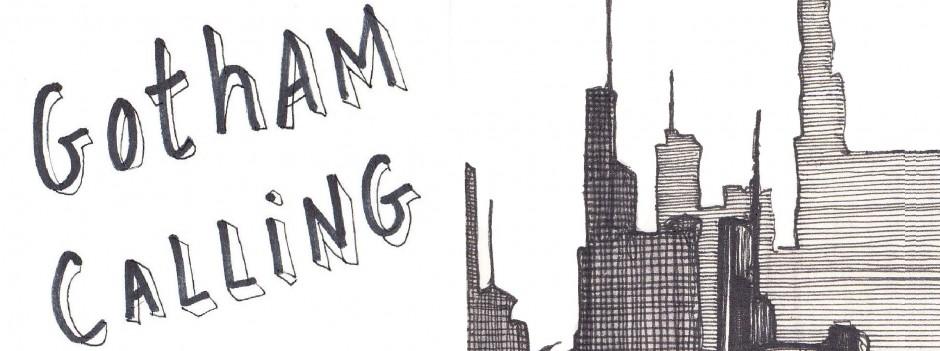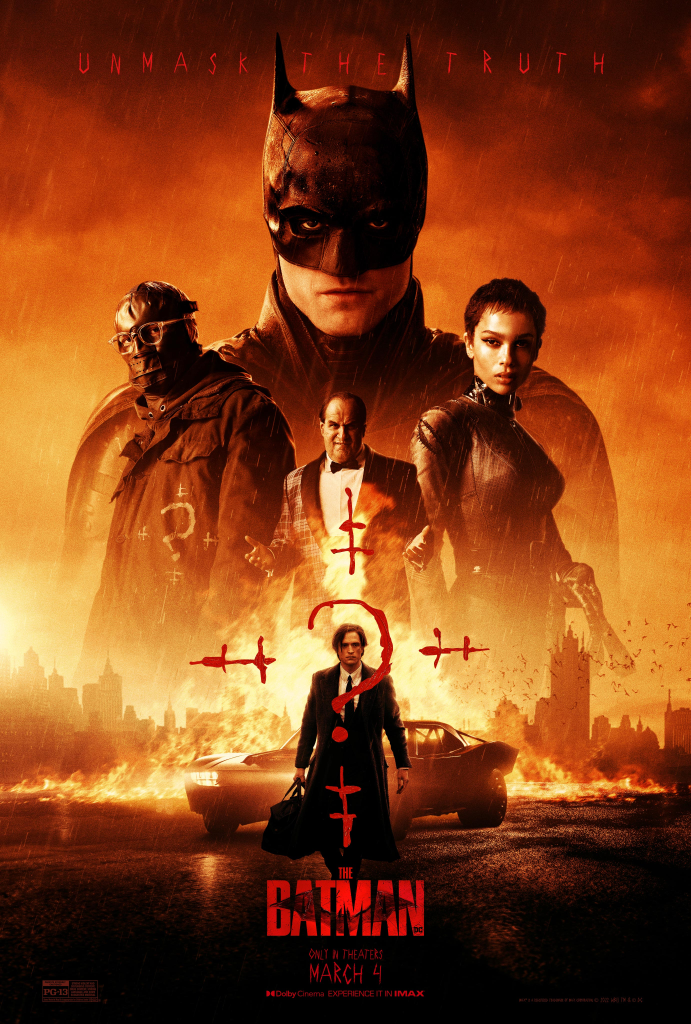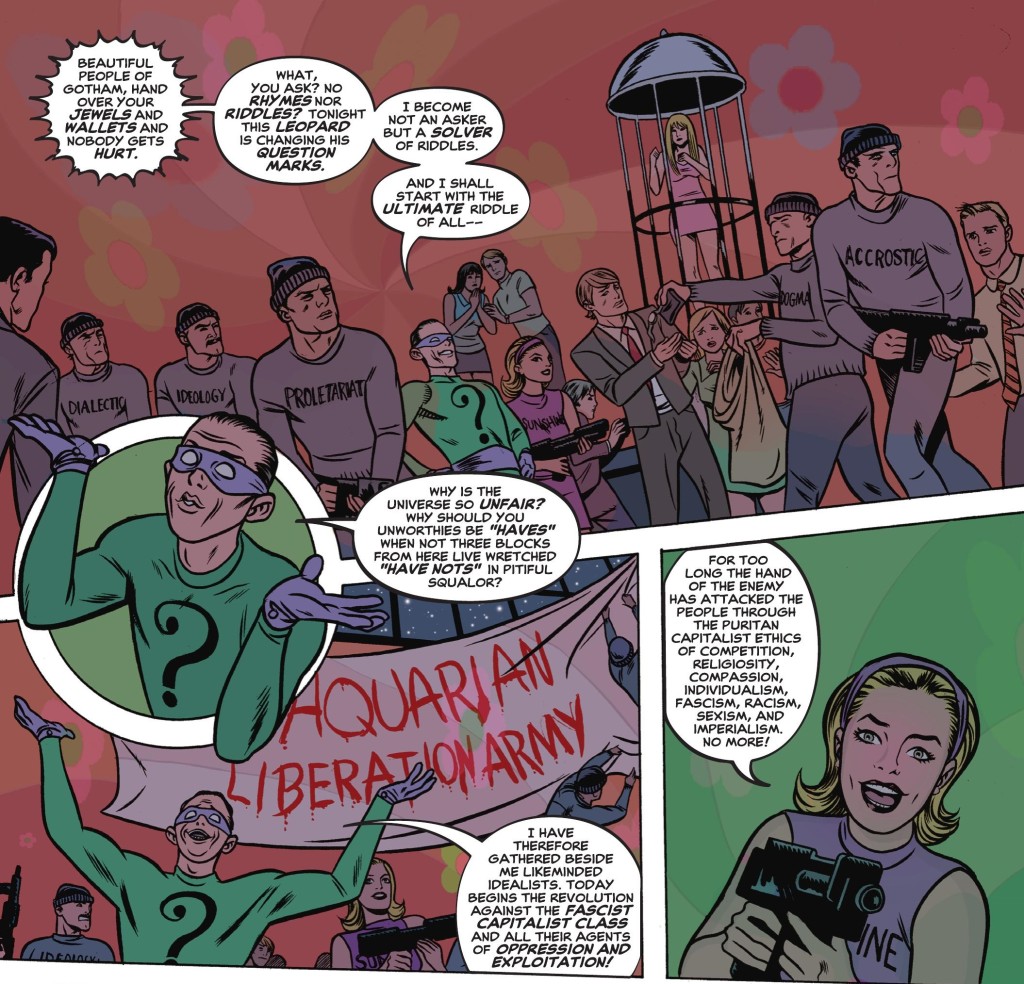So, I finally went to see The Batman…
Overall, I thought the movie was a baffling mess, although not entirely without merit. I kept trying to like it, but it kept fighting back. I’m not going to write a cogent essay about it today, though, just some very loose notes that occurred to me as I was negotiating my conflicted reaction…
The script has a lot going for it, actually. I’ll point out some missteps below, but the general approach is just what I wanted: the Dark Knight investigating an elaborate murder mystery with various familiar rogues in different functions (suspects, wild cards, temporary allies), with shades of film noir. Not only is this right up my alley in terms of what I dig in a Batman story, but it is something original on the big screen, where even Christopher Nolan’s intricate plotting downplayed the World’s Greatest Detective angle.
Since this is such a cool and integral side of the franchise, it makes sense to go there, especially as DC/Warner and Marvel/Disney have been gradually expanding the limits of what mainstream audiovisual superheroes can be, ranging from the grey behemoth that is Zack Snyder’s cut of Justice League to the lighthearted teen shows Supergirl and Stargirl (which are surprisingly faithful to the shmaltzy tone and colorful content of the original comics, complete with a barrage of geeky DCU cameos), not to mention the metafictional experimentation of WandaVision…
The choice of doing a relatively grounded, out-of-continuity tale set early in Batman’s career automatically evokes some awesome comics from the Year One and Legends of the Dark Knight lines. And damn it if Matt Reeves (who co-wrote and directed) doesn’t fully commit to this approach for a couple of hours, at least until the movie completely loses its way towards the end, in the anti-climactic final act.
The story is twisty and twisted, with the serial killer investigation turning into a conspiracy thriller revolving around Gotham City’s corruption and politics. Although lacking any depth whatsoever, The Batman provides many of the beats and joys associated with this sort of pulp material: accessing an underworld of crime and vice, struggling to keep up with the confusing maze of relationships and revelations, recognizing variations of the genre’s clichés… Reeves even opens the film with his own contribution to the longstanding trope of killing Gotham’s mayors!
The fact that I appreciated the general story so much, however, only made the rest of the experience even more frustrating.
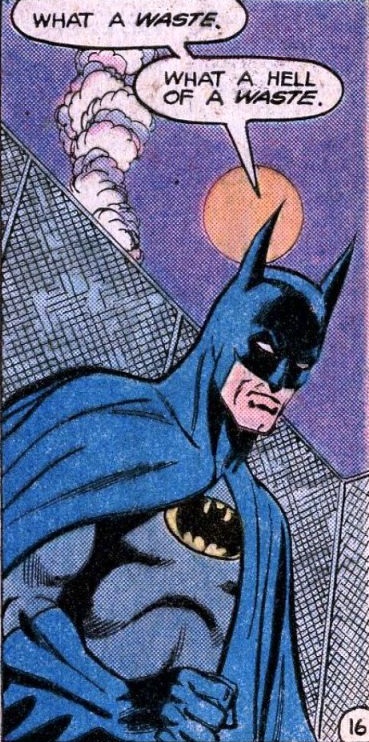 Batman #318
Batman #318
I know I’m in the minority here and that’s fine, but Matt Reeves’ direction really didn’t do it for me at all. Between the engulfing darkness and the awkward framing, I found it difficult to even see what was going on a lot of the time, despite a few stand-out moments (like the debut of the cool-looking batwings or a fight sporadically illuminated by gunfire). For the most part, the pacing was off, the emotions fell flat, and the soundtrack was overbearing, even if the choice of basing the score on a Nirvana song is both captivatingly bizarre and eerily suited to the movie’s teen angst motif, subliminally suggesting Bruce Wayne’s own suicidal drive.
Visually, I expected more from the guy who did the recent, stunning-looking Planet of the Apes trilogy. Reeves tries so damn hard to shove the Caped Crusader and the Riddler into a relentlessly dour, gritty pastiche of David Fincher’s Seven and Zodiac – with some Saw thrown in for good measure – that the result often seems unintentionally silly. (Come to think of it, Fincher would make a great Batman director!)
Batman narratives have always required a balancing act between earnest atmosphere and embracing the outlandish. Unable to pull it off, The Batman desperately compensates by soaking Gotham City in lots and lots and lots of rain.
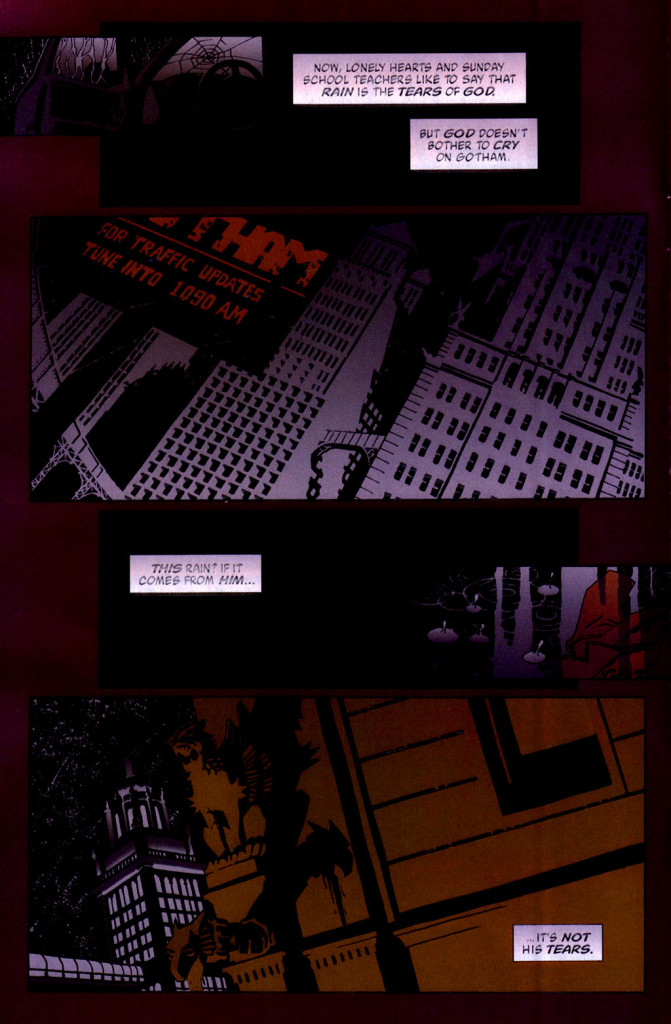 Batman #620
Batman #620
Another key problem I had with The Batman was, well, Batman himself. Robert Pattinson’s emo performance somehow managed to give us the most humorless Batman on screen (even in the grim Snyderverse, Ben Affleck got to play with the character’s dark wit). I guess he’s meant to feel broken, but he feels empty instead, which seriously undermines the dramatic payoffs we were presumably supposed to get from his relationship with Gordon, Catwoman, and the memory of his dead parents.
Reeves and co-screenwriter Peter Craig appear to be confusing seriousness of purpose with jaded numbness. This Bruce Wayne looks so depressed that it’s a wonder he manages to get out of bed, not to mention go out onto the streets every night to beat up young delinquents (it could be a new take on the façade for his secret identity, except that he acts this way even when he’s alone). Even worse, he looks like a pretentious poseur. Pattinson, so charming in Tenet, is stuck with a frowny, one-note personality and isn’t even allowed to properly Bruce it up at parties.
Part of the allure of the Caped Crusader, for me at least, has always been the way he navigates different emotional levels, articulating his core determination and even his inner melancholia with the external roles he has to play, as both Batman and Bruce…
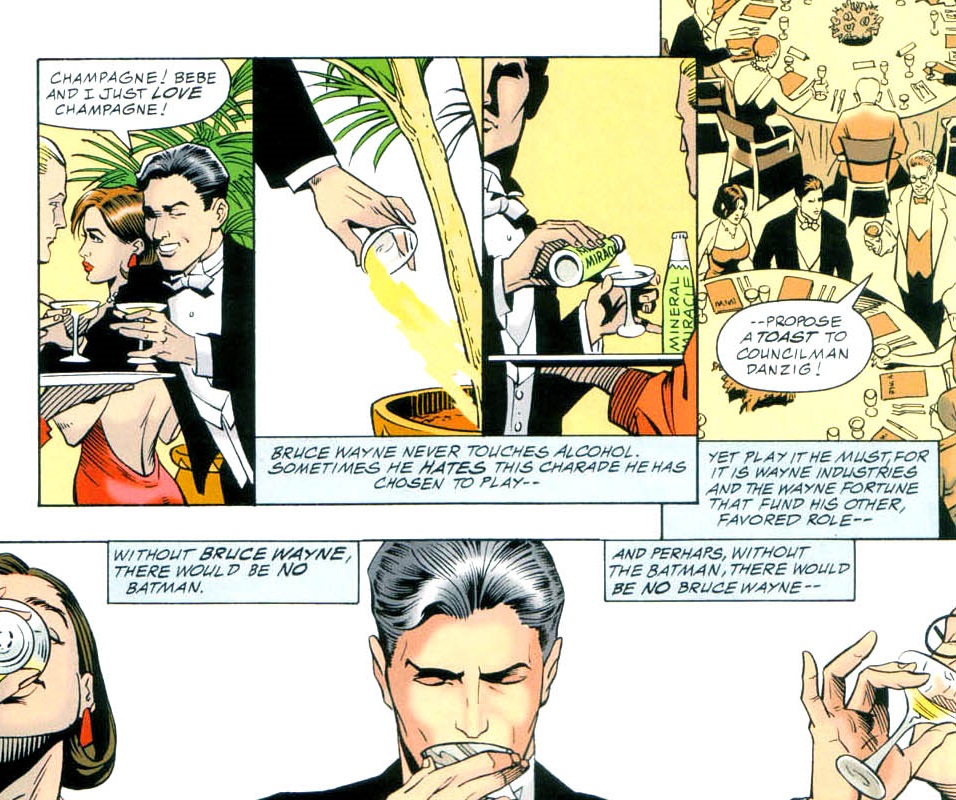 Shadow of the Bat Annual #3
Shadow of the Bat Annual #3
I like the fact that we finally got a reboot that doesn’t feel the need to show us Batman’s origin for the millionth time. Everybody knows it by now and it’s not that complicated anyway. And I don’t mind how odd the whole set up at the Wayne place is, with Bruce’s reclusive scientist and Alfred’s ill-defined status (he no longer does the cleaning: they’ve hired an old lady for that) clearly meant to simulate the home of Sherlock Holmes and Dr. Watson. The set up at Wayne Manor has always been pretty weird, in a surreal gothic kind of way, so this is just another variation.
In fact, for all I care, The Batman can do whatever it wants with the property, as long as it’s interesting. But this is not interesting. I’m not saying Bruce Wayne has to pose as a wisecracking playboy, but there should be *something* there.
Honestly, I would’ve settled for a couple of small gestures hinting at the way Bruce never drops his guard, for example a nod to that fun tradition (which you can also see above) of getting everybody around him drunk while secretly keeping sober by pouring his drinks into the nearest vase:
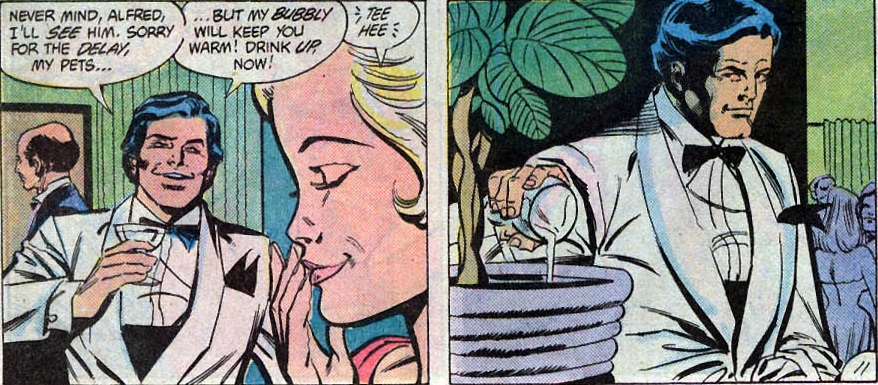 The Brave and the Bold #194
The Brave and the Bold #194
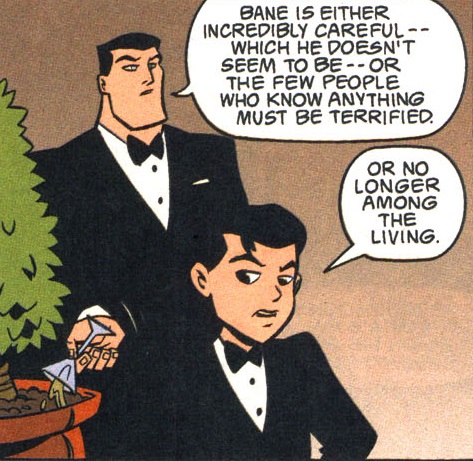 Gotham Adventures #15
Gotham Adventures #15
It gets worse. Once again, filmmakers stick the Dark Knight in a blocky rubber suit, so instead of looking like an athletic ninja he comes off like a slow, clunky fighter without a trace of elegance.
And he’s not that great a detective either, which sort of defeats the purpose of throwing him into a mystery plot – the Riddler strings him along until the end, so Batman mostly solves clues that were designed to be clues (in fact, Alfred solves two of the puzzles for him), showing very little deductive reasoning. This is particularly odd because there is such an established, successful format when it comes to Riddler stories: the Caped Crusader tends to win when, instead of just following the breadcrumbs, he sidesteps the rules of the game and outsmarts his opponent.
Hell, The Batman’s Batman isn’t even much of a hero, in the end. By the time the movie is over, countless people have lost their lives and the Dark Knight awkwardly saved but a few. It’s such a defeatist take on the character that I kept wondering if we were still in the mind of the Clown Prince of Crime, continuing the fantasy he concocted in Todd Phillips’ Joker (which would help explain the uncomfortably long cameo near the end).
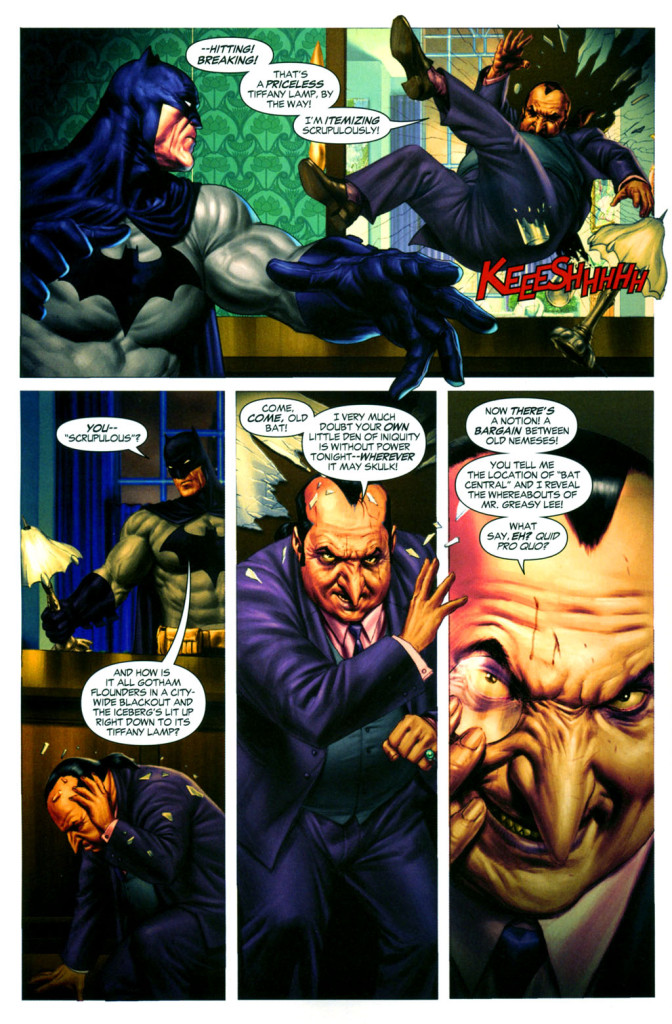 Legends of the Dark Knight #208
Legends of the Dark Knight #208
What about the Rogues’ Gallery? Reeves goes with a version of the Penguin I enjoy, i.e. the mobster-like owner of the Iceberg Lounge willing to play the various the sides against each other in order to make a profit, ultimately developing a precarious arrangement with the Dark Knight, who tacitly tolerates some of his criminal enterprises in exchange for information. And Colin Farrell, visually unrecognizable, plays him with gusto, especially in the scene where he correctly points out how terrible a detective Batman is (later, the Riddler makes the same valid point).
That said, the aggressive exchanges in the Penguin’s office – which by now have become a staple of the franchise – nevertheless lack the playfulness of the comics, where the two characters have settled into a sardonic groove over the years…
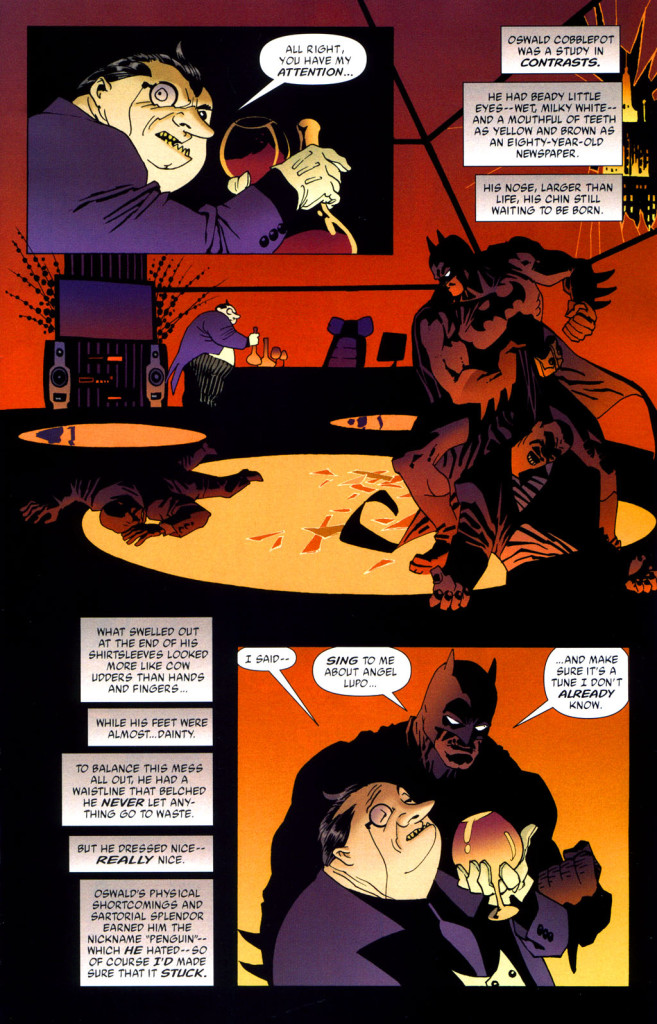 Batman #622
Batman #622
John Turturro is spot-on as gangster Carmine Falcone, who could’ve stepped right out of Miller’s Crossing (where Turturro plays a different type of immoral lowlife, further down the ladder of organized crime).
And while Zoë Kravitz’s sinuous Selina Kyle, with her cat-like body language, doesn’t have the strong presence of a Michelle Pfeiffer or an Anne Hathaway, refreshingly she does get to display a broader emotional range than Pattinson’s eternally brooding Bruce Wayne – her Catwoman is compassionate, anxious, funny, mean, brave, sexy, bloodthirsty, and class-conscious (the latter trait earns her the movie’s best line, in the final conversation with Bruce).
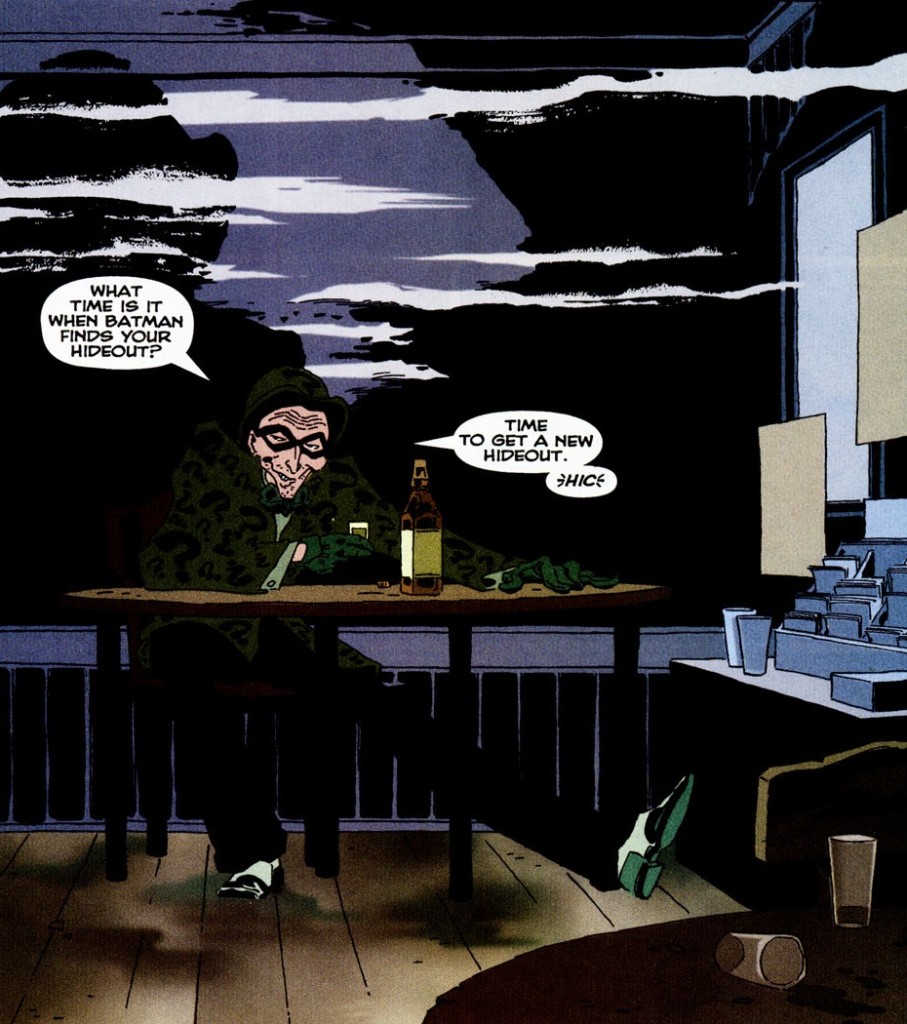 The Long Halloween #11
The Long Halloween #11
This brings us to the Riddler, played by Paul Dano in a consistently unpleasant performance – deliberately so, I suspect, but ultimately more annoying than unsettling. At first, I thought the boring S&M mask was Reeves’ uninspired attempt to restrain the character’s colorfulness in line with the movie’s steadfast grimdark tone, but then Dano kept freaking out and chewing the scenery… His sudden vocal shifts are campy as hell, even before he starts singing to Batman (and even before the film surrenders to the Riddler’s appealing goofiness by having him sit next to a cappuccino with foam shaped like a question mark).
The characterization is quite puzzling (I wonder if it’s a thematic choice). In the comics, the Riddler sends riddles to Batman to prove he’s the smartest guy around. Many writers have suggested the Riddler has a specific pathology, so he cannot help but give himself away, even if he tries to hide his clues within complex charades. And there’s the whole ‘crime as artistic performance’ angle as well.
Yet this Riddler is not toying with Batman or trying to mislead him at all. I’m not sure why he set up all those games, other than some generic explanation about his deranged state of mind. And the Dark Knight seemed as lost as me, which is a shame, as the Riddler is up there as one of my favorite rogues and I normally get a kick out of his interactions with the Caped Crusader…
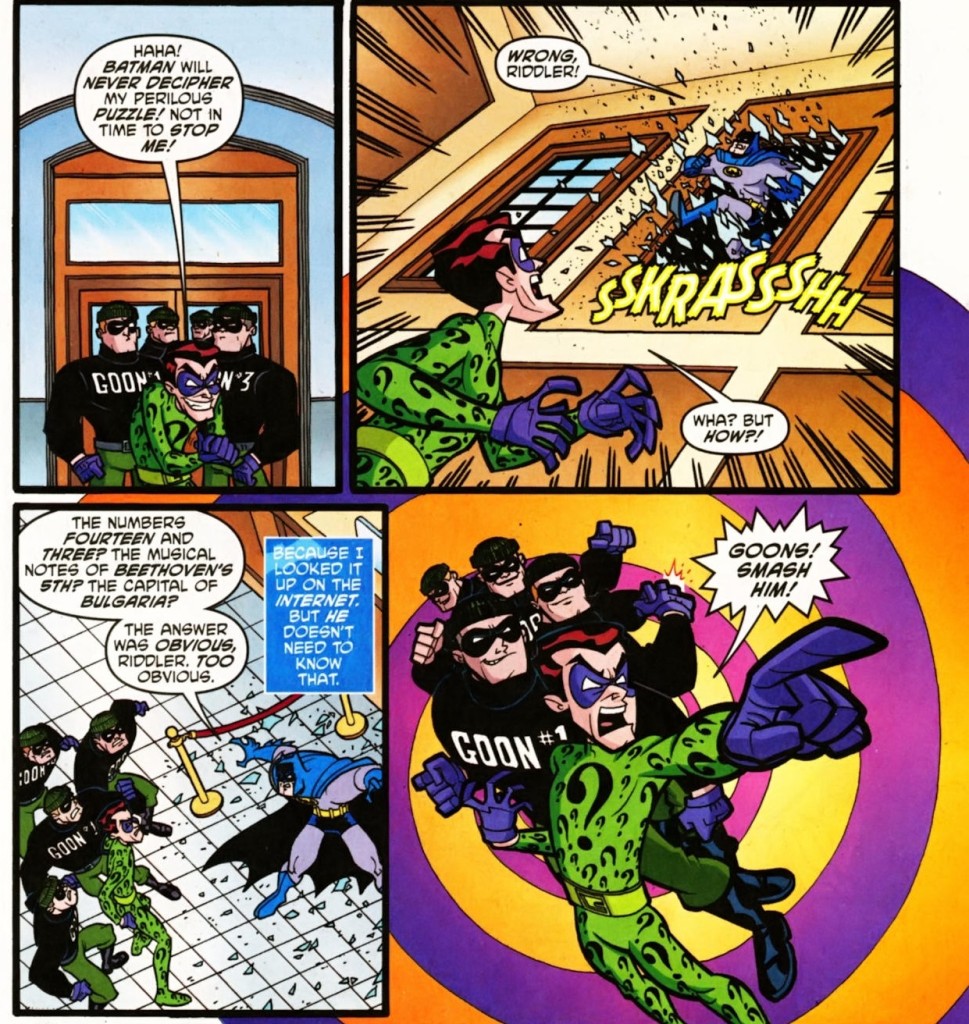 Batman: The Brave and the Bold #9
Batman: The Brave and the Bold #9
I get that the Riddler’s snuff videos and dark web message board army are meant to evoke all sorts of sinister real-world phenomena (terrorist incels? Capitol invaders? QAnon?), but The Batman doesn’t have anything to say about any of that beyond a general acceptance that a populist youtuber can easily mobilize his followers into acts of violence.
If anything, the story validates conspiracy theories about shadowy cabals pulling the strings of corrupt institutions, but even this would be giving the film too much credit. The Batman’s politics are as shallow as everything else in the movie. An underdeveloped subplot about a mayoral election is handled as an afterthought, leaving plenty of unanswered questions (did Bella Reál end up running unopposed?!).
I’m not saying we should’ve gotten a political treaty or a polemic, Dark Knight Rises-style, but if the film wanted to feel topical, then at least it could’ve recontextualized our world’s problems in some imaginative way, rather than just mimicking them. It has become a truism that the 21st-century rise of the superhero blockbuster has involved a close interaction with the ideological and technological zeitgeist. War on Terror imagery was all over the Nolan and Snyder movies, not to mention the first MCU entries (between Iron Man, The Incredible Hulk, and Iron Man 2, it’s interesting to note that the main threats in the early MCU were not supernatural portals, but the military-industrial complex). Yet those works exploited our anxieties and fascinations in intriguing, if often problematic, ways by crafting strange, quasi-satirical fables. Then again, who knows, after a couple of years of Covid-induced isolation and in a time when western TV screens are filled with devastating images of Ukrainian orphans, perhaps The Batman‘s theme of lingering trauma will find its own resonance, regardless of the execution…
Don’t get me wrong: I’m sure there is a lot to squeeze in here, especially in terms of the recurrent debate about superhero fiction as adolescent power fantasy. It’s just that The Batman doesn’t seem to bring anything particularly new to the table in that regard. All the old arguments apply.
